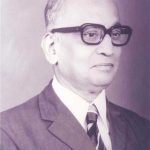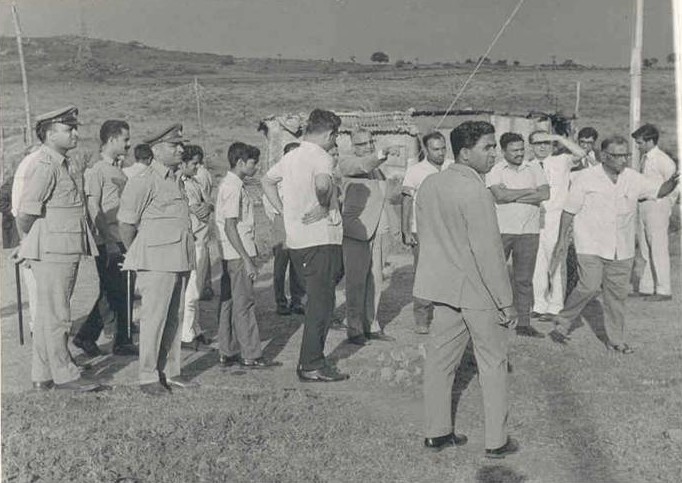Prof. Vijayendra Kasturi

Professor V K R V Rao The Institution Builder
Even in the earlier days of his career, Prof. Rao was not interested in government work or in the corporate sector, but in research work and being able to take policy decisions based on research findings. To quote his words "So I decided to stick to the academic profession not for making theoretical contribution but for concentrating on applied economics relevant for policy making. I was quite excited about the work involved in setting up new educational institutions, teaching and research." (VKRV Rao: His Life and Times ,Kiren Mishra, Vikas Publishing House (P) Ltd. New Delhi -1966- Ch. 3 – Pulsating India, P.42)

Professor Rao’s contributions to his discipline and concrete work are manifested in his attempt to build academic institutions. These institutions are his gifts to the posterity. For the youth of this country, he built these temples of higher learning as he wanted policy formulation on sound academic footing. Experience he gathered as a teacher of economics in Bombay and afterwards provoked his initial thinking to establish first rate teaching institution in the unified field of social sciences. This conviction led him to undertake back-breaking labours in establishing the Delhi School of Economics. His ambition was to bring into existence an institution of excellence like the London School of Economics. The Delhi School of Economics grew out of the then tiny department of Economics of Delhi University. He utilized the autonomy of the Institute to start fresh courses and also put in place a Ph.D programme. The concept of unified Social Sciences was in the back of his mind since then. In 1950s, Rao began to realize the difficulties in maintaining the autonomy of Delhi School of Economics. He also recognized its limited capacity for simultaneous involvement in research and policy making along with immense teaching responsibilities shouldered by the faculty. While he was confident of his ability to maintain its autonomy, he knew that his talent and ambition would not keep him at Delhi School for long. He began planning for an autonomous institution, focusing research and policy support. His becoming Vice Chancellor of Delhi University in 1957, enabled him to implement the idea with the establishment of Institute of Economic Growth in 1958. During the pre-Independence period, education was never given its due. The setting up of the National Council of Educational Research and Training (NCERT) by the Government of India in 1961 marked an event for restructuring education. Rao, during his Ministerial stewardship realizing the importance of school education gave a new thrust to the working of the NCERT. His thrust on education was quite visible. Rao had all along realized the importance of promoting social science research in the country. To give proper facilities for research he wanted to create an autonomous body which would sponsor social science research programmes as well as research projects, and administer grants to the institutions and individuals, give financial support to learned associations, standard journals and institutions. To achieve this objective he created an autonomous public body in the form of the Indian Council of Social Science Research. This was established under the Societies Registration Act (1860) on 30th July 1969 at Delhi. All the 3 institutions founded by him, even today maintain very close intra-institutional relationship. The Indian Institute of Foreign Trade, Delhi and various business administration and management education facilities in the country owe their present prominence to the guidance and nurturing of V K R V Rao, in their formative years.

After his foray into active politics and subsequent stint as Union Minister of Shipping and Transport and then Minister of Education, he directed his energies at establishing a research Institution in the South, particularly in Karnataka, his cultural home-state. In this endeavour, he received copious assistance from the then Chief Minister Devraj Urs, Chief Secretary, G V K Rao and a host of other academics and administrators. The Institute for Social and Economic Change came into being on 20th January 1972. First housed in Carlton House, in the heart of the City, the Institute moved into its spacious, large and sylvan campus in 1976. His thinking was to disseminate the knowledge process of research in social sciences initially through better teaching methods and put them into a framework of policy models to influence the corridors of power, and finally channel it to fuel the desired social and economic change in the countryside. This was indeed visionary thinking about the policy imperatives in the realm of social sciences. The establishment of the three institutions may be viewed from this perspective.

